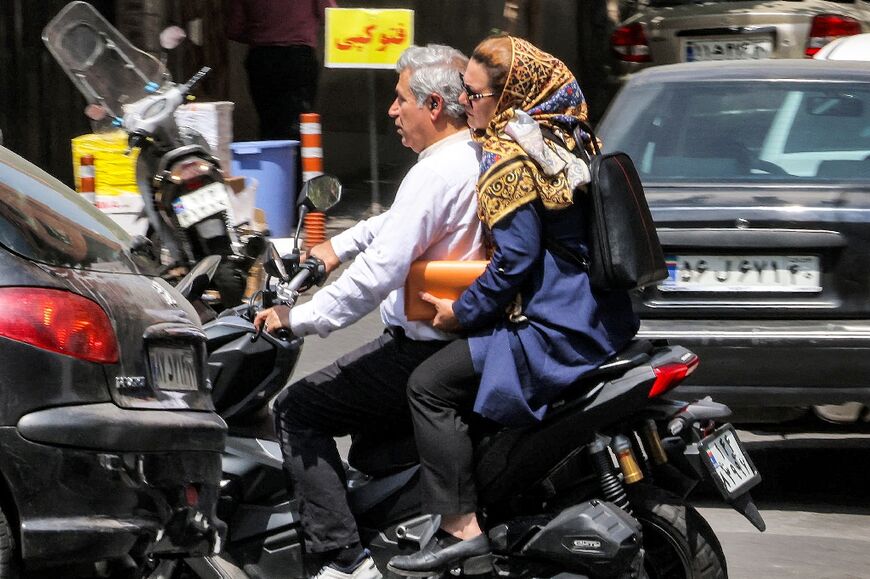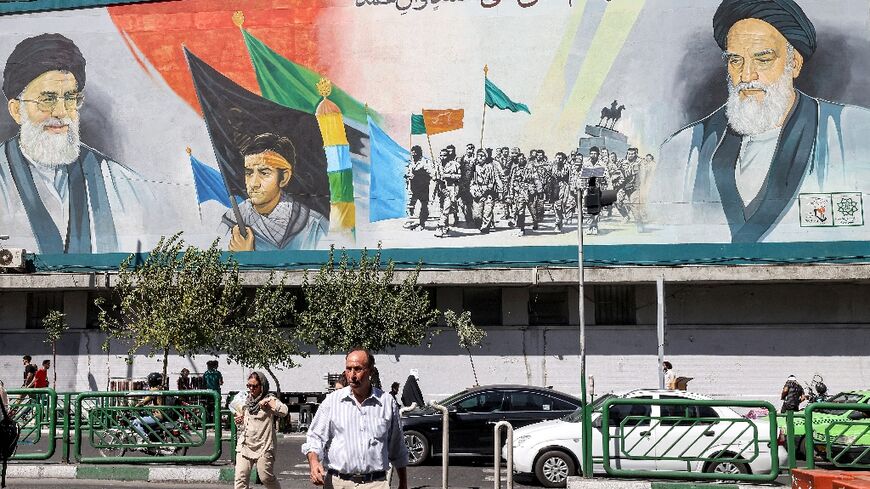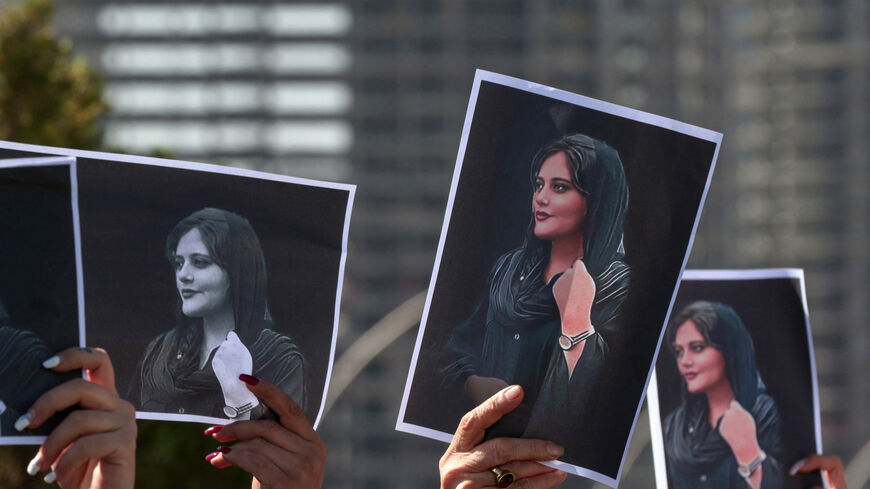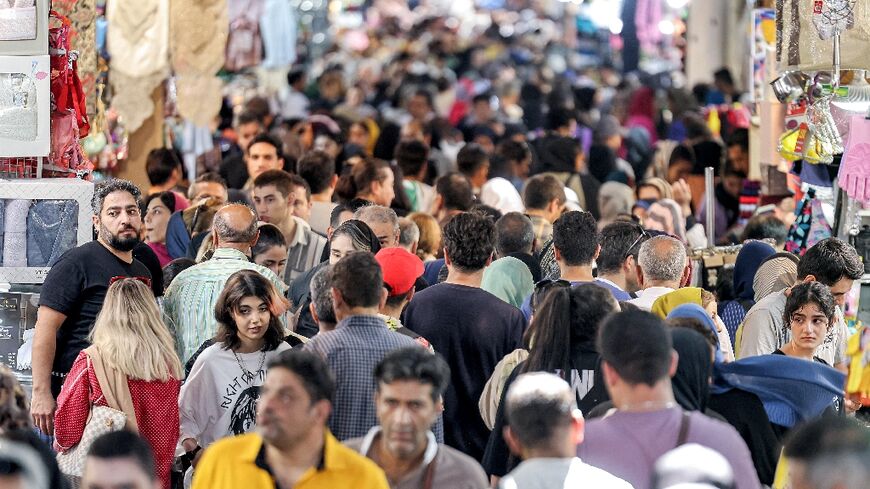Biden leads new Western sanctions on Iran on Amini death anniversary
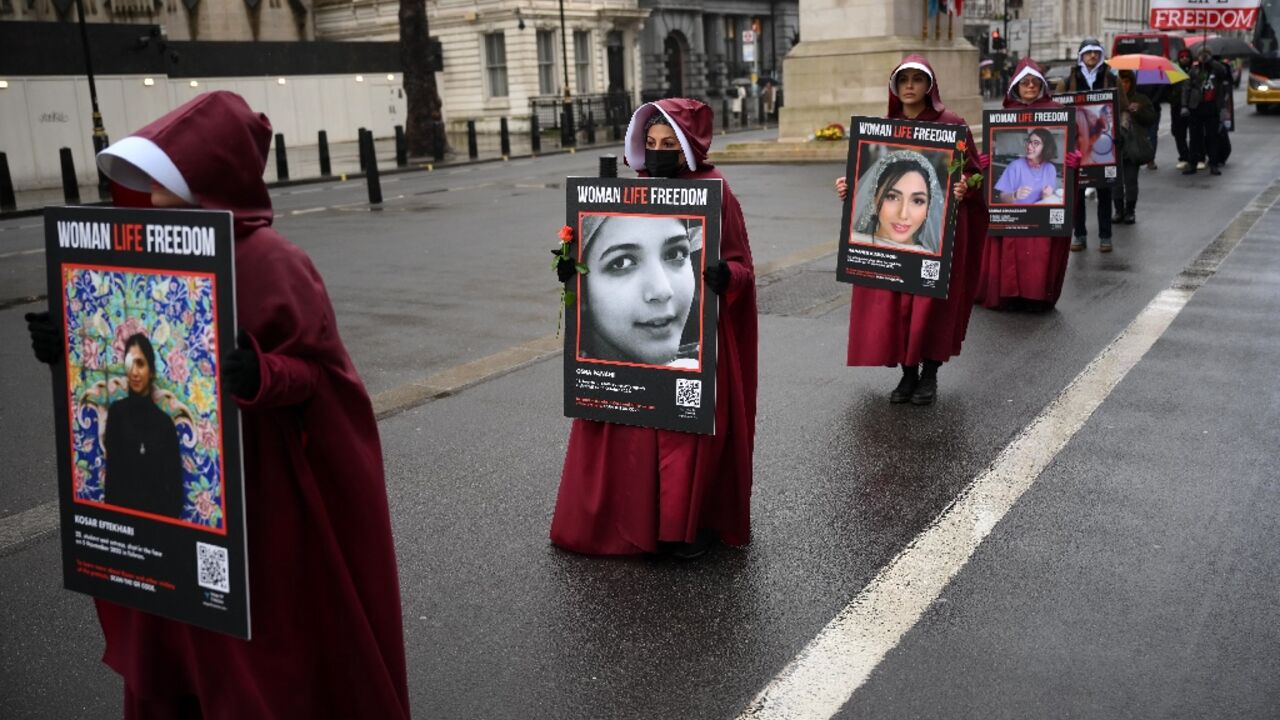
US President Joe Biden on Friday led international calls of solidarity with Iranians one year after Mahsa Amini's death sparked mass protests, with Western powers unveiling a series of new sanctions.
The anniversary of Amini's death in the custody of the clerical state's morality police comes as some activists criticize what they see as a return to business as usual with Tehran, which was already under a slew of sanctions.
Biden said in a statement that "today -- as we remember Mahsa's tragic death -- we reaffirm our commitment to the courageous people of Iran who are carrying on her mission."
"Iranians alone will determine the fate of their country, but the United States remains committed to standing with them -- including providing tools to support Iranians' ability to advocate for their own future," Biden added.
Amini, a 22-year-old Iranian Kurd, died on September 16 last year after her arrest in Tehran for an alleged breach of the Islamic republic's strict dress code for women.
Her death triggered months of nationwide demonstrations under the slogan "Woman, Life, Freedom."
To mark the anniversary, Biden announced sanctions on "some of Iran's most egregious human rights abusers."
The US Treasury Department said it had added 25 Iranian officials and an internet censorship firm onto their sanctions blacklist, saying all were linked to Tehran's suppression of protests after Amini's death.
Also sanctioned was Gholamali Mohammadi, the head of Iran's Prisons Organization, who the Treasury said presides over serious human rights abuses including torture and rape.
Three state-controlled media groups, Press TV, Tasnim News and Fars News, were also placed on the blacklist.
The sanctions were coordinated with the European Union, Britain, Canada and Australia.
Targets of the UK sanctions included Iran's Minister of Culture and Islamic Guidance Mohammad Mehdi Esmaili, Tehran Mayor Alireza Zakani and Iranian police spokesman Saeed Montazer Al-Mahdi.
"Today's sanctions on those responsible for Iran's oppressive laws send a clear message that the UK and our partners will continue to stand with Iranian women and call out the repression it is inflicting on its own people," Foreign Secretary James Cleverly said.
The European Union added to its own blacklist four Iranian officials -- a commander in the elite Revolutionary Guard, two regional police chiefs and a prison boss.
- Prisoner deal draws fire -
Hoping to keep pressure in place, the US House of Representatives on Wednesday passed, nearly unanimously, a bill in honor of Amini that would make it difficult to remove sanctions against top officials including Supreme Leader Ali Khamenei.
The anniversary comes as the United States and Iran complete a deal to release five detained US citizens in exchange for the unfreezing of $6 billion of Iranian funds.
The US citizens, one of them detained for nearly eight years, are expected to be released next week, with the United States also freeing five Iranians.
Biden's Republican critics have savaged the deal as a "ransom" that would enrich a hostile regime. Iran earned the $6 billion by selling oil to South Korea, which froze the funds out of fear of US sanctions imposed by previous president Donald Trump.
"When it comes to getting Americans out of jail and back home who've been unjustly detained anywhere in the world, I'm happy to take any criticism that comes my way," Secretary of State Antony Blinken told reporters Friday.
He said the money transfer was a "sensible arrangement" and that the funds will be restricted through an account in Qatar to humanitarian uses, although Tehran insists it can use the money as it wishes.
Blinken also said that the United States was "not engaged in discussion or negotiation" with Iran over its contested nuclear program.
Diplomacy to restore a moribund 2015 nuclear accord that promised major sanctions relief to Iran collapsed a year ago as attention turned to supporting the protesters.
Under the 2015 agreement, trashed by Trump but still backed by European powers as well as Russia and China, sanctions related to Iran's weapons programs are set to expire next month.
The European Union, France, Germany and Britain said together Thursday that they would maintain the sanctions beyond October 18, provoking a protest by Iran.
